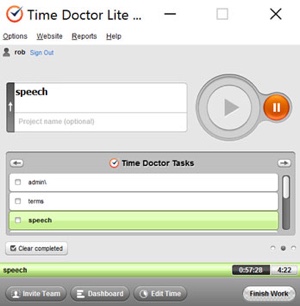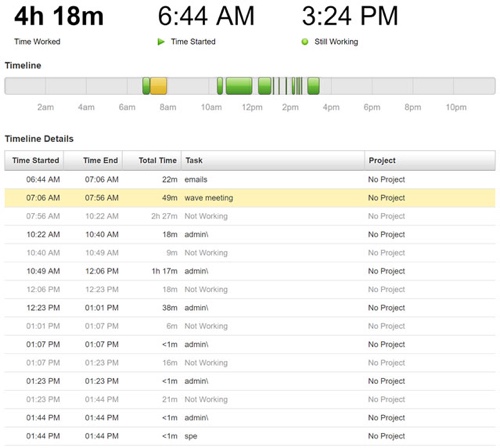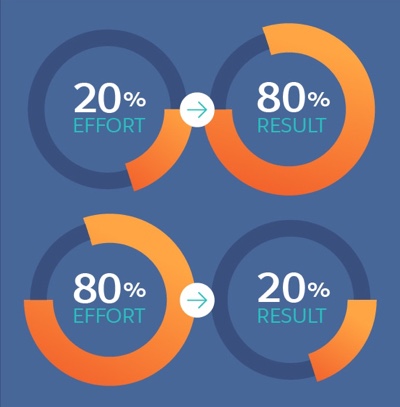Productivity, simply put, is the measure of how effective you are at any given task.
There are countless tips, tricks, and different ways to frame your work mindset that can help you to be more productive.
But overall productivity in your life, away from work, isn’t discussed as often. Making the most of the rest of your time away from work and finding ways to simplify repetitive tasks like paying bills or grocery shopping can have an equally important influence on your success.
Getting your work done more efficiently means you can earn more money, and optimizing your chores and day to day life for productivity means you can enjoy that money with less stress during your downtime.
We’ve all seen the countless tools for productivity in our work, from Trello and Asana to Jiro and Monday, Wunderlist, and everything in between. But these tools don’t have to be strictly for work. There are many ways you can integrate checklist and project management apps into your day to day life, and if you add some IFTTT recipes into the mix, you can free up a lot of head space for more important things.
One of the most significant ways to boost productivity is by working on the correct tasks. It’s not always a matter of getting faster or better, sometimes it has more to do with strategy and understanding how your mind works.
Some people like to wake up early and take care of their most difficult task first, when their mind is still fresh and clear of the day’s burdens and stresses. Others work best at nighttime, and may do better to take care of other stuff during the day so their mind is free for work at night.
Understanding what works for you is a big part of the battle, and then implementing it is a whole other story.
Here are a few techniques that are often cited in a business context, that can also work wonders in your personal life:
"Eating the Frog": This means taking care of the one task you’re least looking forward to, first. Getting it out of the way releases so much tension and resistance. In business, it usually means identifying the thing you’re procrastination about the most, and just doing it. It’s usually easier to accomplish than you’ve built up in your head. In your personal life, the same applies.
Being accountable for your time: When you’re on the clock at work, or self-employed, you probably have a good sense of how long things take, and how to organize your day. If not, start there. But an hour is an hour, so if you’re treating your work time so preciously and making the most of it, think about applying that to your personal life too. Take accountability for your free time and use time blocking techniques (which we’ll discuss more in-depth below) to ensure you’re doing the things that are important to you.
Avoiding distractions: The same way you might leave your phone in the other room and turn off all notifications on your computer, it’s also important to avoid distractions and time-wasters in your personal life. If you have to focus on something in your work for an hour or two, you likely know how to do that. During your free time, if you want to catch up on some shows or watch a movie, you should equally be careful about avoiding distractions.
Here’s an excerpt from an in-depth piece about work ethic that relates to being productive:
Use Time Doctor to Track your Time
Time Doctor is like a stopwatch on your computer, press start when you’re working and press stop when you’re not.
It will give you reports of how much time you work, what tasks you worked on and what websites and applications you used. This is great for work, but you can also use it for personal life if you need to make sure you’re making time for hobbies, interests, and to spend with family. When it’s time to work, time-tracking software like this can help you keep on track – but it can also do the same to help you make the most of your free time.
How easy it is to get sucked into a YouTube spiral and to lose an hour or two? Even if that happens during your free time, it’s still probably not what you’d like to be doing for that long, at least in hindsight.
When I first started using Time Doctor I realized that half the time I spent in front of my computer was not productive. I thought I was working but I was actually on social media, or reading blogs, or watching YouTube.
It’s really important to measure your productive work hours. Otherwise you won’t know how productive you’ve actually been. You can’t improve what you don’t measure.
Am I Working on the Most Important Thing?
According to the 80-20 principle: 80% of the results come from 20% of the work.
For example for most businesses 80% of sales comes from 20% of clients.
So it’s important to ask ourselves:
What’s the one thing I can do, such that by doing it, everything else will become easier or unnecessary? – the ONE thing
What task could I be working on that would produce the biggest results?
Where do I have the most leverage?
Here’s how I went about finding my most important thing:
When I first started business, I was doing everything myself, figuring out marketing strategies, getting traffic, earning income. Making money was the most important thing.
Then I realized I can’t do everything myself, I’ll achieve way bigger results by working together with other people. So my most important thing became hiring a team.
After a while my business grew bigger, and I lost interest in trying to make more money. I had enough to live comfortably. So I became interested in reading, learning broadly about life, and sharing what I learnt with the world by writing. So now my most important thing is writing.
Your most important thing will change all the time, so it’s important to keep asking yourself: am I working on the most important thing? Refer to the article on what should I do with my life?



